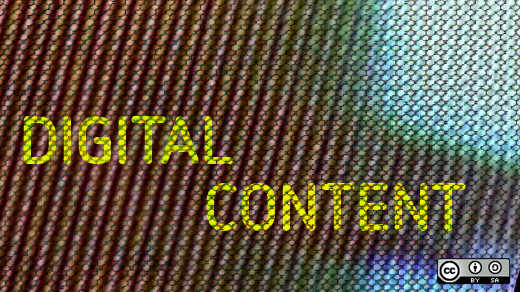WCET Digital Learning Content Summit: First Day Highlights
Published by: WCET | 5/10/2012
Tags: Cost Of Instruction, Digital Learning, Student Success, Textbooks, WCET
Published by: WCET | 5/10/2012
Tags: Cost Of Instruction, Digital Learning, Student Success, Textbooks, WCET
Greetings from Salt Lake City where WCET is holding its Leadership Summit on New Directions for Digital Learning Content. Academic leaders, elearning professionals, and corporate executives are sharing advances in both proprietary and open digital resources.
Below is a taste of some of the notable comments heard at the meeting. You’ll note that there are differing opinions, depending on the presenter. With a few exceptions, I’ve masked the presenters to let the ideas stand on their own:
Ellen Wagner’s hope for the meeting: That we’ll have conversations about digital content options so that we know what we need to do to provide value for our stakeholders.
One thing is certain…there is no reason that content should be handled asynchronously as it has in the past. Why shouldn’t content be part of everyday lives?
We have moral obligation to get education to as many people around the world as we can.
OERs are not a panacea. There are lots of questions around the OER quality. OERs are a caveat emptor market, with the user having to judge quality in a highly variable market.
I’m excited about digital content, but I’m concerned about the destruction of the idea of personal property. If I buy a book I own the book , but digital content tends to be a world of passwords and permissions that expire. You really only have rented access. The advantages of OERs are great in terms of long-term ownership of content.
Embed the cost of course materials into the cost structure of the course.
Institutions need to develop principles of what they want to see in digital content. In selecting providers, privilege those that meet your principles. Institutions need to create market pressure to get what they want. Some sample principles:
Listen to your students. They understand the technology a lot better than we do. Following them is not a bad place for us to go.
The Washington Open Course Library found that developing courses within an LMS was not the best way to go.
In its first year, the Washington Open Course Library saved students more in textbook costs that was spent in development costs. The returns should only improve in future years.
How does Open Course Library maintain the energy it takes to get that many people to develop digital content? “I’ve got two words: Herding cats.”
EduKan’s Project Aristotle makes extensive use of analytics to measure student success. The analytics results also help students in customize their learning by guiding them in choosing from among alternate content options.
Classes using publisher-generated materials appear to be higher quality. But we want to encourage faculty to start generating their own content, not necessarily textbooks. Courses should be built around content, not a textbook
Intellectual property issues are a pain in the neck. Faculty are terrified of the legal implications.
Faculty control over individual courses will be disappearing in a few years.
Many institutions still do not have the support resources (like instructional designers) to support faculty and content creation.
In working with faculty, the “better” quality argument does not always work, but the “cheaper for students” argument sometimes does. They are more motivated to save students money.
If the etextbook price does not respect the popular opinion that digital is cheaper, then real questions will arise.
Follow the discussion on the second day of the Summit at Twitter hashtag: #wcetdlc
Russ
Russell Poulin
Deputy Director, Research & Analysis
WCET – WICHE Cooperative for Educational Technologies
rpoulin@wiche.edu
Support our work. Join WCET.
Graphic: Created by Meridith Atwater for opensource.com: http://www.flickr.com/photos/opensourceway/5161093789/
2 replies on “WCET Digital Learning Content Summit: First Day Highlights”
I fully agree with the sentiment of listening to our students. What lacks sufficient (any?) nuance is the line they know more about technology than we do. I would agree that some know more, but many know less. Others know more about the technical aspects, but don’t understand the implications of the use. Still others, think they know more, but they really don’t and lack the metacognitive ability to know they don’t know. We need a learning community that allows these voices to be heard and their arguments considered, but just following students does everyone in the class a disservice.
I’m inclined to pick at the point about building courses around content, not textbooks. That is one step forward. How about another? How about building courses around activities that engage students with the content? Content is a resource for learning, after all, a means to a learning end.